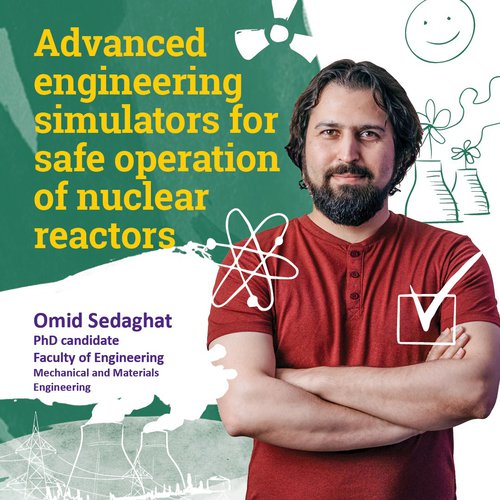Inspiring Minds seeks to broaden awareness and impact of graduate student research, while enhancing transferable skills. Students were challenged to describe their research, scholarship or creative activity in 150 or fewer words to share with our community.

When any engineering device is designed, there is a fundamental question that needs to be answered: Will the product fail under operating condition? And if yes, how long does it take? The answer to this question is extremely important, especially for the products in which their safety and economic operation is imperative, e.g. a car engine, a gas vessel, or a nuclear reactor. To assess accurately the life cycle of these engineering products, there has been an increasing interest in the past decade in the engineering simulators. The more advanced features these simulators have, the more reliable they are. In my PhD studies at the Mechanical and Materials Engineering department of Western University, I have been working on the development of such an advanced simulator which can be used in the nuclear energy sector.
Omid Sedaghat
PhD candidate, Mechanical and Materials Engineering (Scientific Computing)
Faculty of Engineering - Western University
Supervisor
Hamidreza Abdolvand
Omid Sedaghat is a PhD candidate in Mechanical and Materials Engineering at Western University. He completed his undergraduate degree in Mechanical engineering at the Iran University of Science and Technology, and then he moved to the Netherlands to complete his master studies at the Technical University of Eindhoven. Before joining Western University, he was working as a mechanical designer for different engineering and manufacturing companies. His PhD work is on the development of a numerical model, which can be used to simulate the deformation of nuclear reactor core components made of zirconium.
View Omid's work as it appears in the Inspiring Minds Digital Collection: https://ir.lib.uwo.ca/inspiringminds/133/
